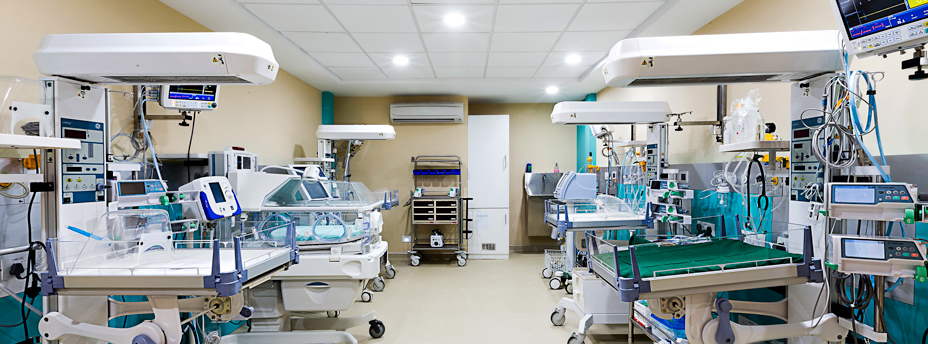
© Apollo Health and Lifestyle Ltd.
 When treating a heart attack, each minute can make the difference between life and death. In India, Apollo Hospitals Enterprise Limited and its subsidiary, Apollo Health and Lifestyle Limited, have developed a “continuum of care” model that streamlines patients’ medical experience to ensure that life-saving treatments are administered quickly and efficiently across its network.
When treating a heart attack, each minute can make the difference between life and death. In India, Apollo Hospitals Enterprise Limited and its subsidiary, Apollo Health and Lifestyle Limited, have developed a “continuum of care” model that streamlines patients’ medical experience to ensure that life-saving treatments are administered quickly and efficiently across its network.
For example, a patient with a heart condition might go to an Apollo Clinic for a stress ECG test. If he goes into cardiac arrest or needs further care, Apollo Clinic’s on-site cardiologist would order medications and transfer him, via Apollo ambulance, to an Apollo Hospital. En route, the Apollo Clinic team would contact the Apollo Hospital cardiac team to provide the complete background on the patient and his case history. Apollo’s IT network integrates the patient’s information across formats to efficiently facilitate timely and accurate information sharing. At the hospital, the patient would go straight to the catheterization lab for a coronary artery angiography and an angioplasty could be performed that same day. The patient would recover at the hospital and later return to that first Apollo clinic for follow-up and tracking.
Apollo Hospitals was founded in 1979 to provide care to an underserved market that was plagued by gaps in infrastructure, delivery, and affordability. At the time, an integrated network devoted to providing a continuum of care to patients was a revolutionary idea – but 34 years later, Apollo has fundamentally changed private healthcare in India. To further expand Apollo’s small-format health care centers across India, improve access to quality healthcare, and create jobs, IFC invested $67 million in Apollo Health and Lifestyle. IFC contributed half for its own account, and half from the IFC Emerging Asia Fund, an investment fund managed by IFC Asset Management Company.
Apollo Health and Lifestyle will use IFC’s equity investment to open nearly 150 small format healthcare centers, nine maternity facilities, and 60 diagnostic medical labs that will be supported by 760 diagnostic collection points. The investment will create over 4,000 new jobs across India for health care professionals, including doctors, nurses, and technicians.
Standardizing a Continuum of Care
Through Apollo Health and Lifestyle, the company runs a network of multi-specialty clinics including diagnostic centers, maternity hospitals, planned surgery hospitals, and diabetes management clinics. It has a presence in 17 out of 29 Indian states and seven union territories and served nearly 1.3 million patients last year.
This is a significant step forward for health care in India. As recently as 2015, the country of 1.3 billion -- home to the second-largest population in the world -- spent only 3.8 percent of GDP on health. Of this amount, the government invested 1.4 percent of GDP on health, while the world average for government spending was 8.6 percent. Yet India continues to be a very underserved health care market that bears 20 percent of the global disease burden, including a high and rapidly growing rate of diabetes.
One of the biggest barriers to better health care has been India’s hospital-centric health care delivery system, which is a poor fit for addressing India’s rising incidence of chronic diseases. The World Bank Group’s Private Participation for Health in India Initiative has recommended exploring other, lower cost, models of delivering care that foster stronger linkages between primary care facilities, diagnostic centers, and other providers and hospitals. Apollo’s strategy – opening smaller format centers that emphasize a continuum of care tailored to each patient’s needs– includes a new focus on preventative care and diabetes management clinics.
Small-format health care centers allow Apollo to provide quality health care accessible to a broader population, and help the tertiary hospitals focus on patients with critical needs. The small format model is also more cost-effective than the hospital model because Apollo facilities can be located in neighborhoods that are closer to where patients live and where leases for smaller spaces are typically cheaper, reducing overhead. It can focus on the services that are most relevant to the local communities and equips it properly, also reducing fixed costs. By focusing on short-stay surgery, it can manage its operating theaters more efficiently and can turn around patients faster. For example, it can deliver short stay surgeries at 10 to 20 percent lower cost than inpatient hospitals, and savings are passed along to patients, most of whom pay out-of-pocket.
A History of Partnering for a Healthier India
Apollo and IFC have been partners since 1998. During that time IFC has made five investments totaling nearly $190 million in equity and loans, including the latest support to Apollo Health and Lifestyle. The earlier investments achieved positive financial and social impact results and helped Apollo become a national and global player.
Our investment in Apollo reflects our commitment to private sector support for the delivery of better health outcomes.
For more information, read the case study Apollo: Better Care through an Integrated Network in India.
To learn more about IFC’s work in the health sector, visit www.ifc.org/health.
Published in May 2017


